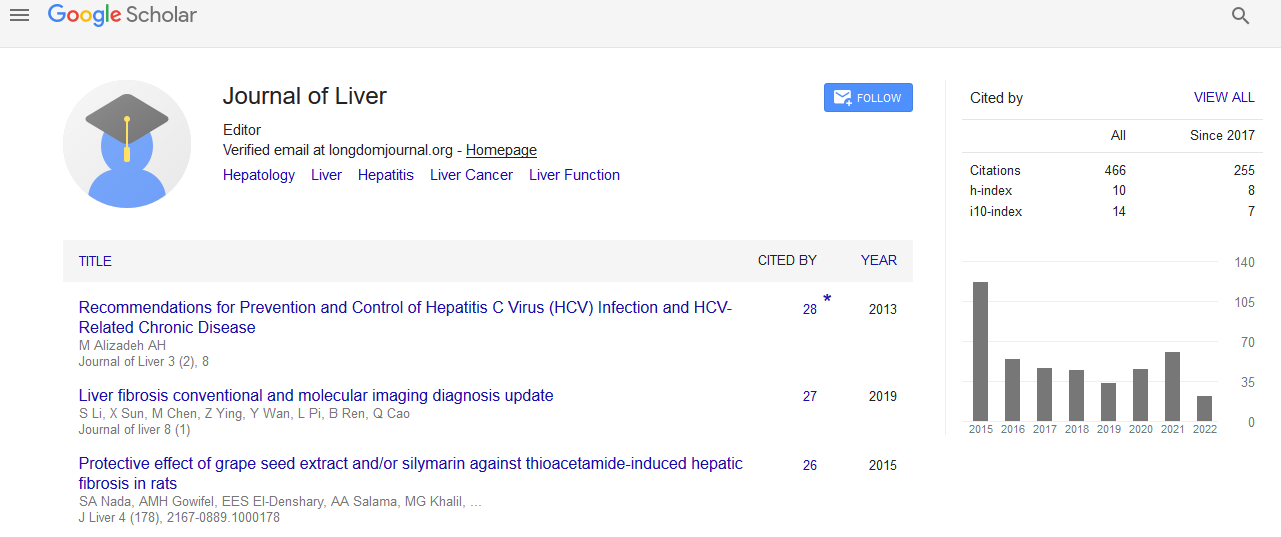PMC/PubMed Indexed Articles
Indexed In
- Open J Gate
- Genamics JournalSeek
- Academic Keys
- RefSeek
- Hamdard University
- EBSCO A-Z
- OCLC- WorldCat
- Publons
- Geneva Foundation for Medical Education and Research
- Google Scholar
Useful Links
Share This Page
Journal Flyer

Open Access Journals
- Agri and Aquaculture
- Biochemistry
- Bioinformatics & Systems Biology
- Business & Management
- Chemistry
- Clinical Sciences
- Engineering
- Food & Nutrition
- General Science
- Genetics & Molecular Biology
- Immunology & Microbiology
- Medical Sciences
- Neuroscience & Psychology
- Nursing & Health Care
- Pharmaceutical Sciences
Assessment of serum betatrophin concentrations in patients with chronic hepatitis C-related liver cirrhosis
CO-ORGANIZED EVENT: 5th World Congress on Hepatitis & Liver Diseases & 2nd International Conference on Pancreatic Cancer & Liver Diseases
August 10-12, 2017 London, UK
Amira Shehata, M El-Hamouly, N El-Abd and A El-Gazzarah
Menoufia University, Egypt
Posters & Accepted Abstracts: J Liver
Abstract:
Background: Hepatitis C virus (HCV) is a serious clinical condition that usually progresses to liver cirrhosis. Betatrophin is newly discovered hormone that has been considered as important regulator of pancreatic beta-cell proliferation. We investigated serum betatrophin concentration in patients with chronic hepatitis C-related liver cirrhosis and assessed its potential relations with liver cirrhosis progression and insulin resistance. Methods: This study included seventy patients who were diagnosed with chronic hepatitis C-related liver cirrhosis. Patients were assorted into three groups according to Child-Pugh score. In addition, control group was included and consisted of 20 healthy volunteers. Serum betatrophin was measured by ELISA and insulin resistance was estimated by Homeostasis model assessment (HOMA). Results: Cirrhotic patients showed significantly higher circulating betatrophin levels in comparison with healthy controls (P<0.001). Additionally, positive correlation was observed between betatrophin concentration and the progression of liver cirrhosis as assessed by Child-Pugh score (r=0.66; P<0.001). Furthermore, a significantly higher insulin resistance was demonstrated in cirrhotic patients than in controls (P<0.001). Significantly positive association between betatrophin levels and homeostatic model assessment of insulin resistance (HOMA-IR) was found (r=0.96; P<0.001). Conclusion: Betatrophin may serve as a novel biomarker of liver cirrhosis progression and insulin resistance in chronic hepatitis C patients.

